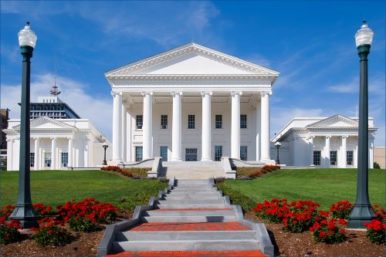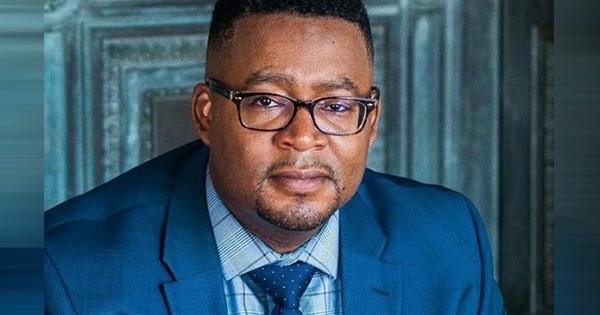Virginia lawmakers send bipartisan budget deal to Youngkin
The big buzz at the Virginia Capitol Wednesday wasn’t excitement over the new state budget.
It was the construction work on the tunnel being dug beneath the complex, which rattled the historic building throughout the day as lawmakers approved a long-overdue two-year spending plan.
Unlike Capitol Square, the budget didn’t have any big holes in it this year after an influx of revenue and federal pandemic relief dollars gave policymakers plenty of spending leeway.
The budget now heading to Gov. Glenn Youngkin’s desk includes big pay raises for state employees, teachers and first responders, significant new investments in education, mental health care and gun violence prevention and roughly $4 billion in tax relief, a top priority for Youngkin.
Combined, the tax cuts could mean an extra $1,108 for an average family of four, according to a budget staff calculation, including direct rebate payments of up to $250 per person or $500 per married couple.
The budget was supposed to be finished before legislators ended their regular session in mid-March. But the Democratic Senate and Republican House of Delegates didn’t reach an agreement swiftly, leading to a rare June workday for state legislators, many of whom just learned the parameters of the budget deal a few days ago.
Del. Marcus Simon, D-Fairfax, who voted against the budget, called it “probably the most opaque budget negotiation we could have imagined,” adding that most lawmakers learned about the details in media reports after months of private talks between the negotiators.
Simon also inveighed against legislating via the budget on issues — like marijuana policy, sports betting and transportation projects — that could not be resolved through the normal legislative process. “That’s not how we ought to be doing things going forward,” Simon said.
The Senate vote was 32-4. The House vote was 88-7.
Once the budget is officially sent to Youngkin in the next few days, the governor will have seven days to review it and make his own recommendations.
“The governor is pleased that the General Assembly has moved forward on the budget and adopted a great framework which delivers on his key priorities to give Virginians tax relief, pass the largest education budget and invest more in law enforcement and behavioral health,” said Youngkin spokesperson Macaulay Porter. “The governor and his team continue to review the language of the budget and discuss potential amendments.”
Highlights of the budget include:
- Tax cuts that double the state’s standard income tax deduction, make the state’s earned-income tax credit partially refundable to help low-income workers and eliminate the state-level tax on groceries and personal hygiene products like diapers, wipes and tampons.
- $13 million in gun violence prevention funding, which will be distributed to local governments, law enforcement and community organizations for initiatives meant to reduce shootings.
- $1.25 billion for school construction and renovation, $100 million for K-12 “lab schools” in partnership with colleges and universities, more than $270 million to increase support positions in public schools and $104 million to keep college tuition lower for in-state students.
- At least $320 million to widen Interstate 64 to three lanes between Richmond and Williamsburg.
- A 10 percent raise for state employees and teachers spread across the two budget years, as well as a $1,000 one-time bonus in the first year.
- 37 percent raises for direct care staff at Virginia’s struggling mental health facilities.
- $1.4 billion in additional funding for health care
(Editor’s Note: This article was edited and republished with permission by the Virginia Mercury.)


